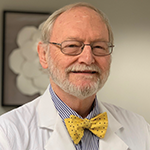“On the life side, there is a lot to recommend rheumatology as well,” notes Dr. Daikh. “It is largely an outpatient vocation. You are able to mix work hours in with other important aspects of your life.”
When interacting with students, residents and even fellows, rheumatologists should present rheumatology as a field they may want to consider as a career. Another focus should be on giving them an awareness of rheumatology in whichever specialty they take up.
“Even if students don’t end up with us for their careers, many of the conditions we treat are extremely common,” notes Dr. Daikh. “Medical students frequently don’t get adequate exposure to these kinds of conditions during medical school.”
ACR & the Rheumatology Research Foundation
An indication of the importance attached by specialty leaders to bringing medical students to the profession is seen in the various programs offered by the ACR and the Rheumatology Research Foundation (the Foundation). These are multilevel endeavors to get a person interested in the specialty and keep them involved, at least through residency selection.
“A program was started a few years ago that tried to reach students at medical schools around the city hosting our annual scientific sessions,” says Dr. Daikh, a former president of the Foundation. “We invite them to the meetings and then partner them up with physicians who are in attendance. This exposes them to the profession and all of the aspects of research that are currently going on.” For example, at this year’s Annual Meeting, the Foundation hosted the Student and Resident Outreach Experience. The event gave students and residents in the Boston area the opportunity to attend the meeting, learn more about the field from a wide range of rheumatology community members and network with others who have chosen to pursue the subspecialty.
The Foundation, which was established by the ACR in 1985, funds a variety of research preceptorships for residents, and medical and graduate students. The preceptorships provide an opportunity for students to work with a rheumatologist on a research project. Some students who participate have even been invited to present their research at the ACR’s meetings.
The Foundation also offers the Medical Student Clinical Preceptorship. The student shadows the physician on a full-time basis for either four- or eight-week periods. This experience includes observing patient contact in the office, on hospital rounds, during rehabilitation facility visits and at conferences at the preceptor’s institution.
